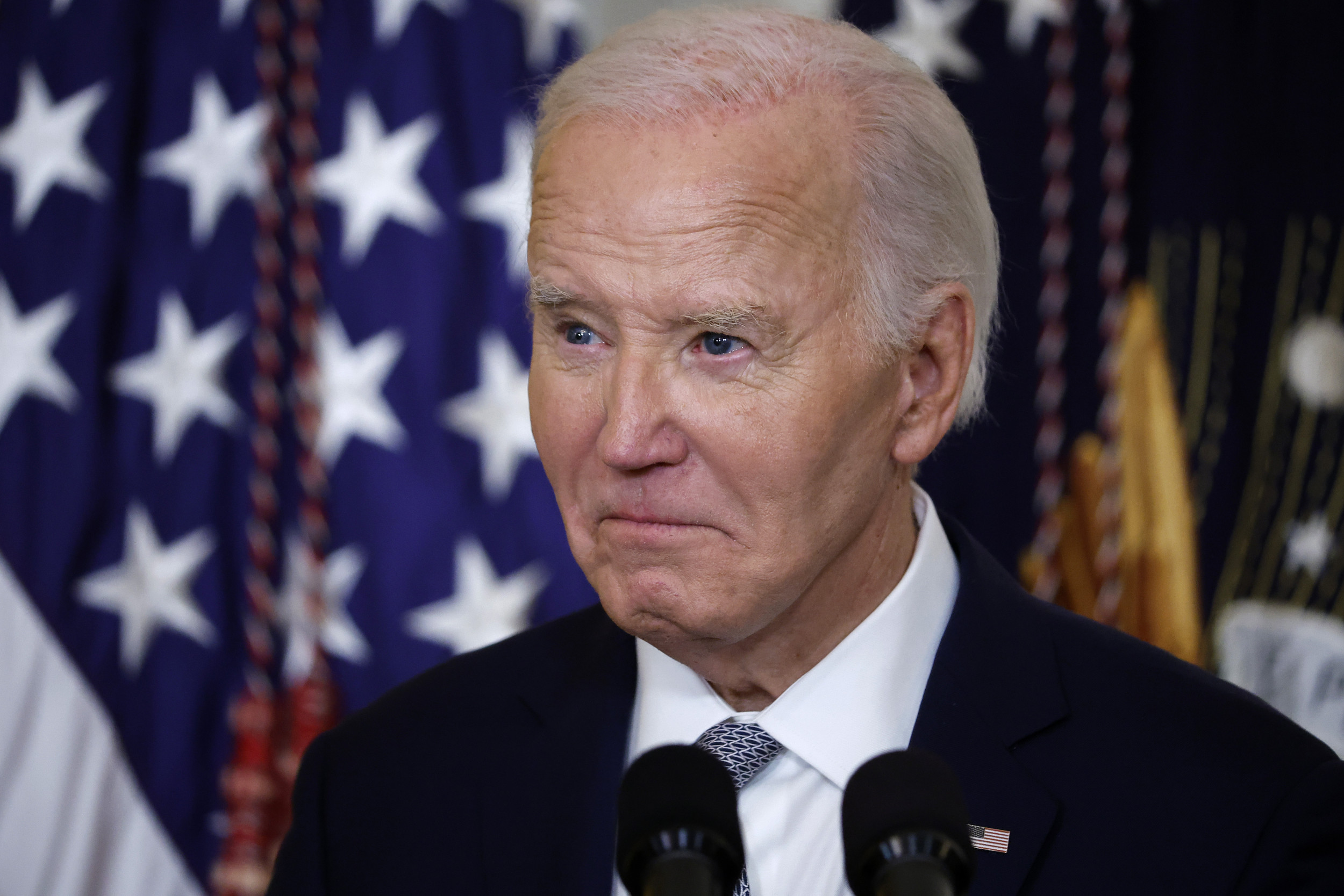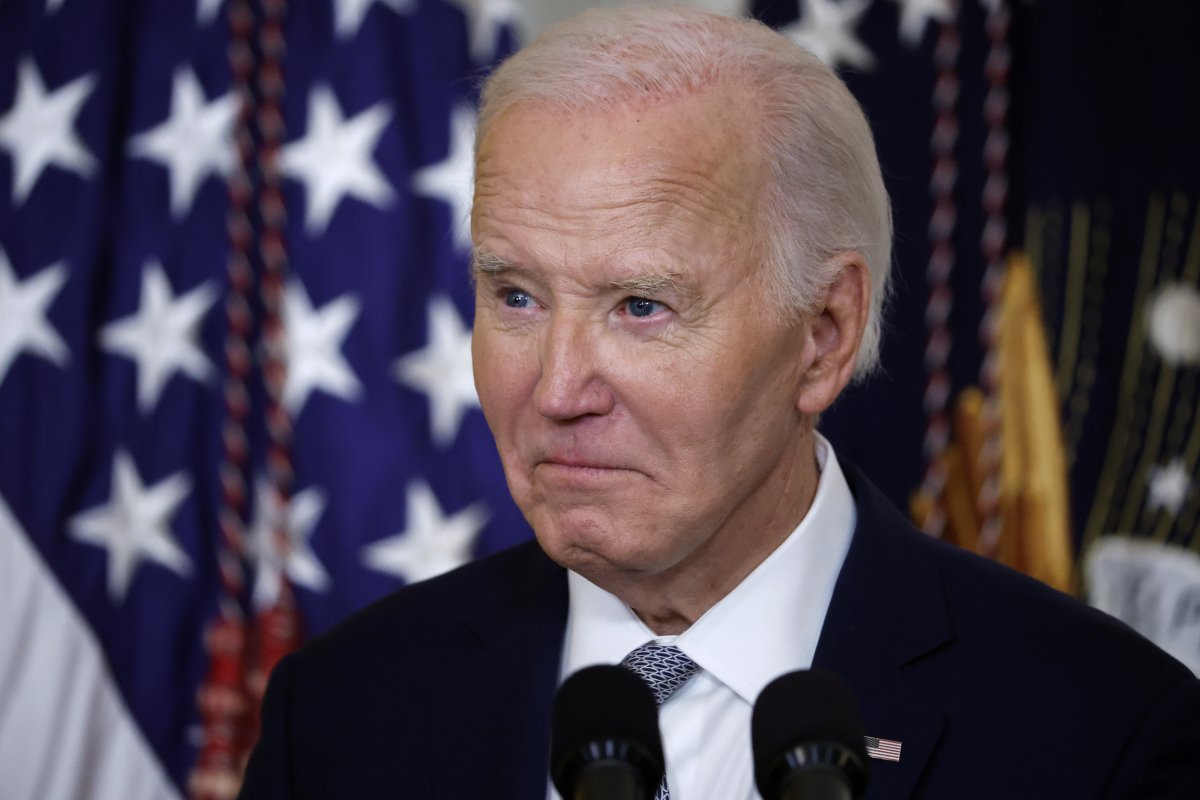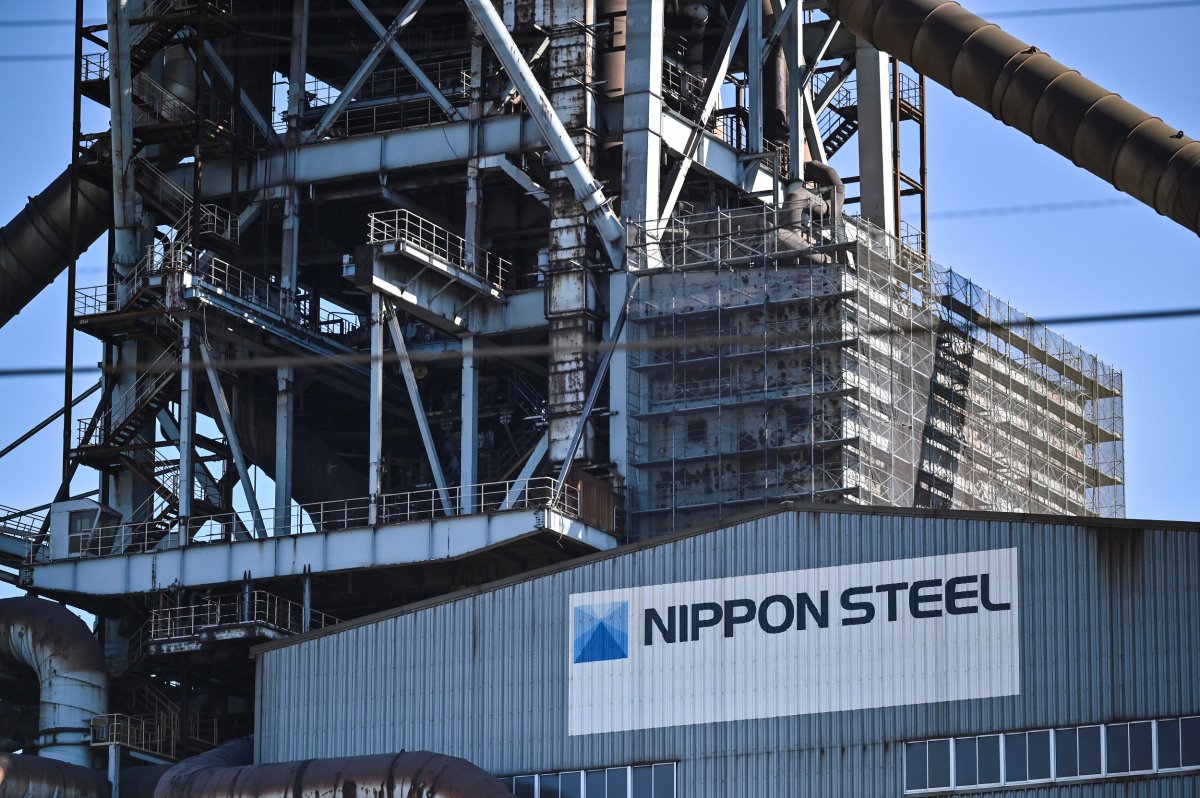
President Joe Biden has formally blocked a proposed near-$15 billion acquisition of U.S. Steel by Nippon Steel of Japan due to “national security” concerns.
The decision, announced on Jan. 3, follows months of scrutiny by the Committee on Foreign Investment in the United States (CFIUS), which failed to reach a consensus and referred the matter to the president. Biden’s executive order prohibits the transaction and mandates its full abandonment within 30 days.
Newsweek has contacted the White House and representatives from Nippon via email for comment.

Chip Somodevilla/Getty Images
Why It Matters
The decision comes at a politically sensitive time as Biden prepares to depart the White House on Jan. 20. to make way for President-elect Donald Trump. U.S. Steel are considered a critical component of the country’s defense and infrastructure. Biden’s last-minute rejection of the deal suggests growing governmental tensions between maintaining domestic control over key industries and fostering international investment.
Japan, a key ally and the largest foreign holder of U.S. debt, may see the decision as a strain on bilateral relations. The incoming Trump administration’s “America First” agenda means talks are unlikely to be resumed with enthusiasm.
What to Know
The proposed acquisition, first announced in December 2023, included Nippon Steel’s commitment to invest billions in modernizing U.S. Steel facilities and maintaining jobs with $5,000 in closing bonuses to U.S. Steel employees, a nearly $100 million expense.
They also promised to keep the U.S. Steel name and Pittsburgh headquarters. However, labor unions, led by the United Steelworkers, vehemently opposed the deal, questioning Nippon Steel’s labor practices and its reliability as a trade partner.
Why Doesn’t Biden Support the Steel Merger?
“As I have said many times, steel production—and the steel workers who produce it—are the backbone of our nation,” Biden said in an announcement on Friday.
“That is because steel powers our country: our infrastructure, our auto industry, and our defense industrial base. Without domestic steel production and domestic steel workers, our nation is less strong and less secure.”
What Are the Pros and Cons of the Steel Merger?
Critics of the merger pointed to Nippon Steel’s history of trade violations and warned that foreign ownership could undermine the U.S.’s ability to meet critical infrastructure and defense needs.
On the other hand, proponents, including former Secretary of State Mike Pompeo, argued that the deal would bolster U.S. Steel’s production capacity and competitiveness in the global market.
Nippon Steel argued that it is uniquely positioned to bolster American steel in a global market increasingly dominated by Chinese producers. The company also committed to investing billions in United Steelworkers-represented facilities, including U.S. Steel’s aging blast furnaces.
The Japanese steelmaker pledged to advocate for U.S. Steel in trade disputes and assured it would not import steel slabs that could undercut the operation of the company’s blast furnaces, signaling a strong commitment to supporting domestic production.
Was There Support for the Steel Merger?
Support for Nippon Steel’s proposal has grown among conservatives and business groups, including the U.S. Chamber of Commerce. The Japanese steelmaker has also gained backing from some Steelworkers union members and local mayors in communities near its blast furnaces in Pennsylvania and Indiana, signaling increasing momentum for the deal.
However, Union President David McCall called the decision to block the acquisition the “right move for our members and our national security.”
Biden’s order, issued under the Defense Production Act, cited “credible evidence” that the merger could impair national security. CFIUS’s inability to reach a consensus on the $14.9 billion deal left the final decision to the president, who had long expressed skepticism about the deal.

RICHARD A. BROOKS/AFP via Getty Images
What People Are Saying
David McCall, United Steelworkers President said: “Allowing [Nippon Steel] to purchase U.S. Steel would have offered it the opportunity to further destabilize our trade system from within and in the process, compromise our ability to meet our own national security and critical infrastructure needs.”
Mike Pompeo, Former Secretary of State wrote in The Wall Street Journal last month: “The deal would strengthen U.S. Steel’s current operations and production capacity, benefit its workers and their communities, and enhance the competitiveness of the American steel industry.”
Prof. Stephen Nagy, International Relations Expert told the BBC: “The Biden administration couldn’t appear weak on foreign businesses, whether it’s an ally or adversary.”
What Happens Next
Biden’s order sets a 30-day deadline for Nippon Steel and U.S. Steel to certify their full withdrawal from the proposed transaction. While legal action remains a possibility, the administration appears determined to uphold its stance on domestic industrial ownership.
The decision also positions the Biden administration’s final days as continuing a legacy of economic protectionism and industrial policy.
This article includes reporting from The Associated Press





